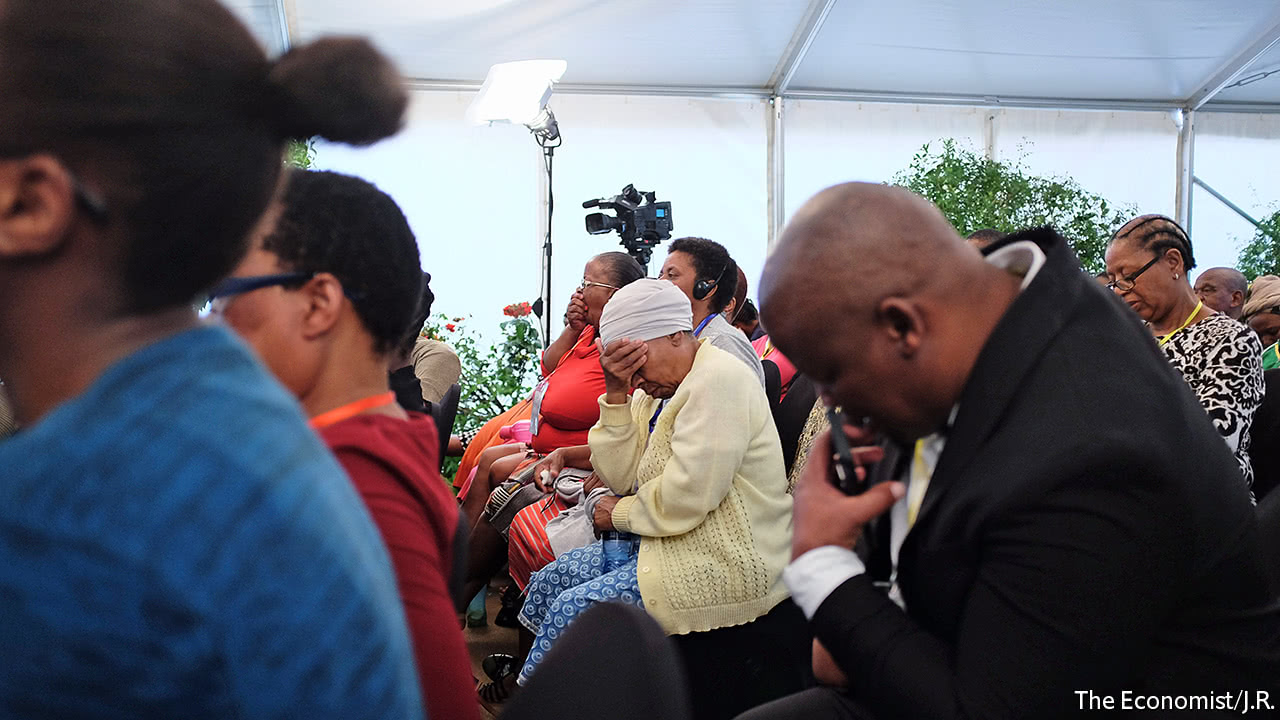“MY DAUGHTER was the first to die,” says Maria Phehla, pulling her thin yellow jersey tight, as if to contain the grief consuming her birdlike frame. “It was a painful death.”
It was also an untimely and needless one. Ms Phehla’s daughter, Deborah, was 46 years old when she died just three days after South Africa’s health authorities moved her from a specialised mental-health hospital to an unlicensed charity. Deborah, who was mentally impaired, “died alone, locked up in an outbuilding [when] she choked on her own blood,” says Ms Phehla (pictured above). An autopsy found that her stomach contained two lumps of hard plastic, each the size of a fist, and balls of brown paper. “She was starving,” says Ms Phehla. “She ate whatever was in the room.”
Deborah’s death may have been the first, but it was far from the last in what lawyers are calling South Africa’s worst human-rights abuse since the end of apartheid. Over the course of about nine months in 2016 and...Continue reading
Source: Middle East and Africa http://ift.tt/2qUCTxE


EmoticonEmoticon